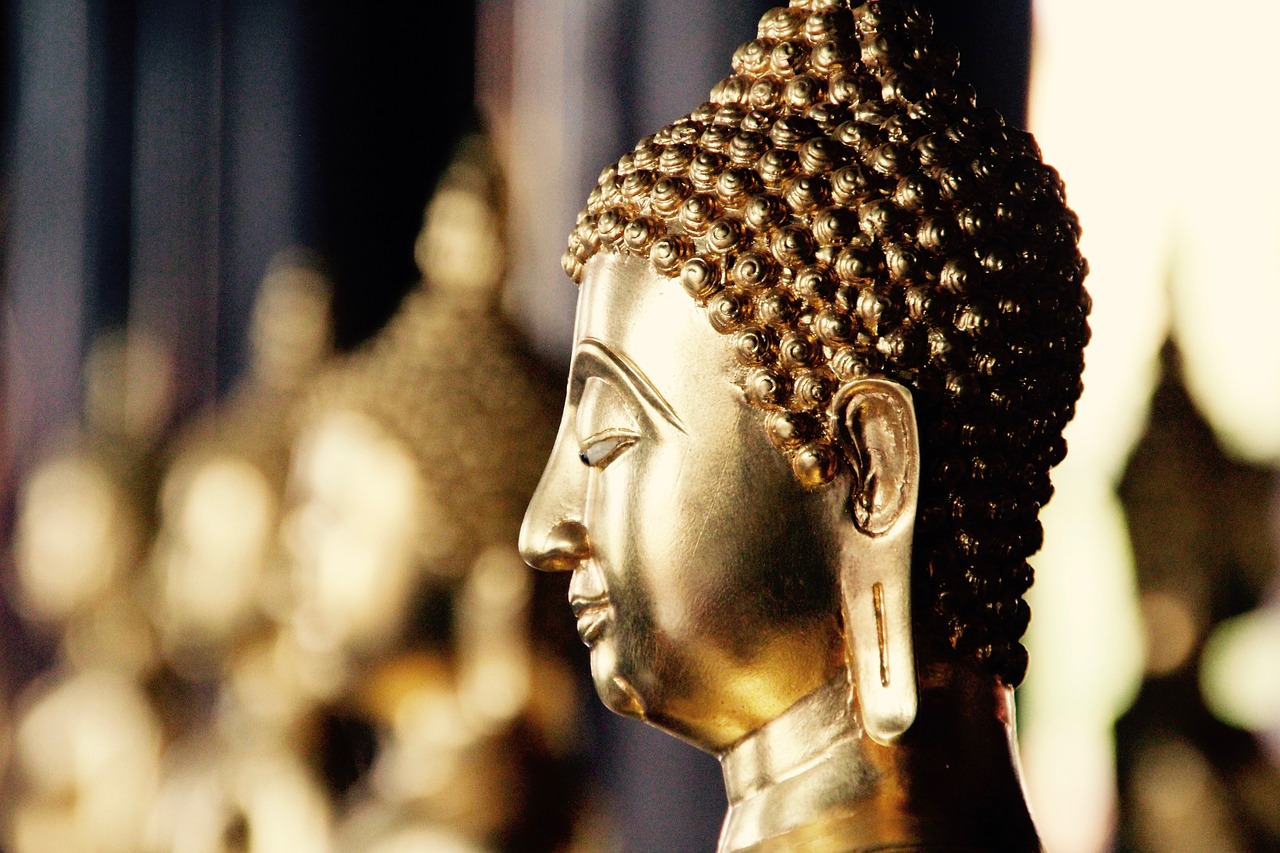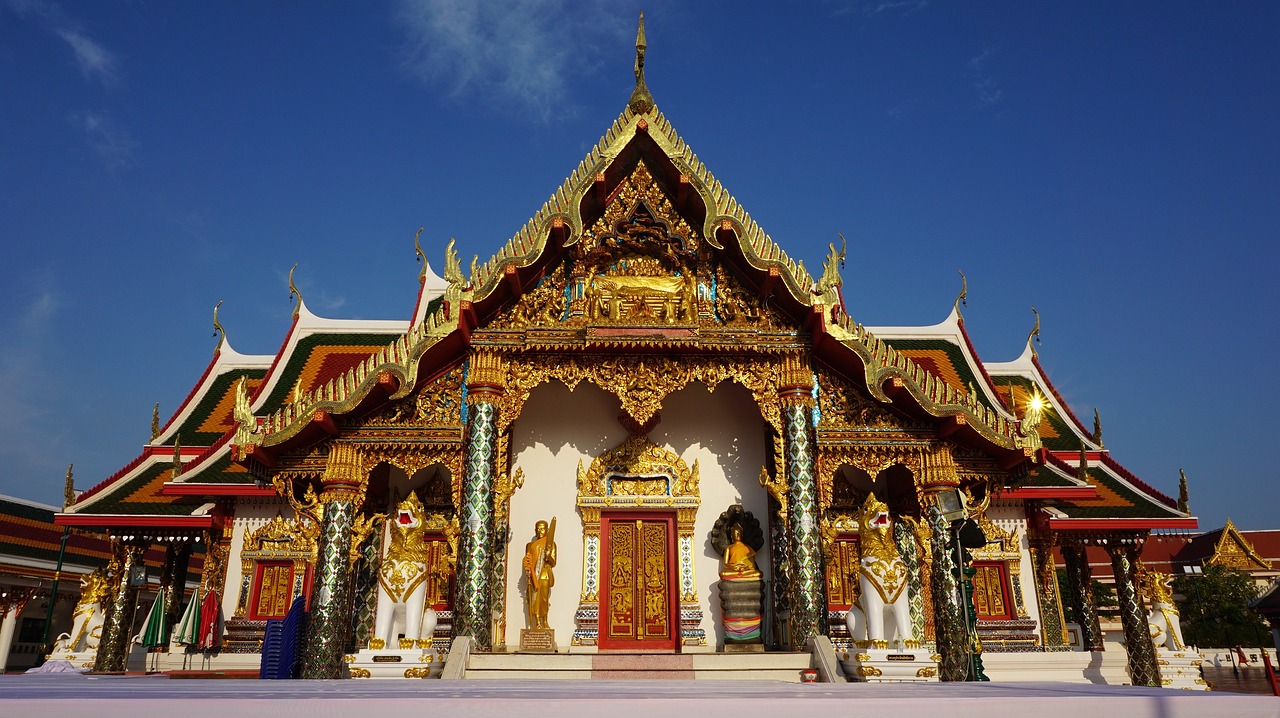
Thai, also known as Siamese or Ayutthaya, is the official language of Thailand and is spoken by more than 20 million people. It can take a while for an English speaker to become proficient in Thai due to significant linguistic differences. The English language is just as distinct from Thai as it is from many other Asian languages, and learning its pronunciation and rules can be challenging yet rewarding. Therefore, it shouldn’t deter you from learning some basic phrases to prepare for your trip to Thailand. In this article, we will provide essential Thai phrases for travelers, enabling you to overcome language barriers with taxi drivers, night market vendors, and street food stalls. Moreover, you will be able to navigate public transportation effortlessly.
Language Overview | Thai
Thai, which belongs to the Tai Language family, incorporates a significant amount of vocabulary from Pali, Sanskrit, Mon, and Old Khmer. Similar to various languages in Southeast Asia, Thai is tonal, meaning that the tonal variation of a word can completely alter its meaning. There are five tones categorized as mid, rising, high, and falling low. Dialects within the language utilize different tones and are distinguished by variations in consonant sounds. As Thai and Laotian were formerly part of the Khmer civilization, they are mutually intelligible. In fact, northeastern Thai dialects closely resemble Laotian.
It should be noted that Thai is not the sole Tai language, but it is the predominant one in the country due to its official status. The majority of Thai individuals are bilingual, being fluent in both Thai and another language. While the official count of Tai languages is elusive, it has been approximated that over 70 of them are spoken in the country, albeit some are diminishing in usage.
The language also has gender-specific rules, which aim to add politeness to sentences. For instance, females would add “ka/kap” and males would add “khrup/krap” at the end of sentences. Although we did discover that many people in Thailand have some knowledge of English, we received warmer greetings when we used Thai to greet the locals. Just like any language, it greatly helps if you can show an interest in learning about the local culture during your visit.
The Thai Script
I really appreciate the Thai script, with its 44 consonants and 15 vowels. Looking at it, I find it quite captivating as it has a distinct cursive style and resembles a form of artistic expression.
Brief Overview of the Various Thai Phrases
When you travel to Thailand, I suggest acquiring knowledge of greetings, familiarizing yourself with essential phrases for navigation, and potentially mastering more advanced and indispensable expressions to distinguish yourself from the typical tourist. Keep in mind that these phrases are written in English to aid in pronunciation – albeit approximately.
General greetings in Thai
- Hello / goodbye – Sawasdee krap / ka
- Sabaidee myee? – How are you?
- Very good, thanks! – Dee mak mak krap / ka
- Not good – My dee krap / ka
- I’m not well – My sabai krap / ka
- Have you eaten yet?* – Kin khao reang krap / ka
- It’s nice to meet you – Yin dee tidy roojak khun krap / ka
- Thank-you – Kop khun krap / ka
- Thank you very much – Kop khun mak krap / ka
- Excuse me – kotort krap / ka
- Yes – Chy
- No – My chy
Being understood in Thai
- I don’t understand – My kowjai krap / ka
- I don’t know – My roo krap / ka
- I don’t speak Thai – Mai poot passah Thai krap / ka
- I speak a little bit of Thai – Poot passah Thai nit noy krap / ka
- Do you speak English? – Poot passah Angrit dy my krap / ka
- Do you speak Thai? – Poot passah Thai dy my krap / ka
- You’re very good! – Geng mak mak
- Sure! – Nenorn
Thai food and restaurant phrases
- Do you have a menu, please? – Mee menu my krap / ka
- Can I have the bill, please? – Chick bin krap / ka
- I don’t want it spicy – My ped krap / ka
- No sugar please – My sy nam dtang krap / ka
- No MSG (monosodium glutamate) please – My sy pong choo rote krap / ka
- Can I have water please – Nam plow krap / ka
- Can I have ice please – Ow nam keng krap / ka
- I’m a vegetarian – Kin jay
- I cannot eat nuts – Kin tua mai dai
- I don’t eat pork/prawns/chicken/beef – My kin moo/gung/gy/neuya krap / ka
- Two beers please – Song bia krap / ka
- Two hot coffees please – Song kafe ron krap / ka
- Iced coffee please – Kafe yen
- Do you have tea? – Mee cha my krap / ka
- Where is the toilet? – Hong nam yoo tinie krap / ka
- I like Thai food – Chob ahan Thai
- I like spicy food – Chob ahan ped
- I don’t like spicy food – My chob ahan ped
- I don’t like chili – My chob prik
- I’m really hungry – Hyoow mak mak
- I’m really thirsty – Krahay nam mak mak
- I want more – Ow eek krap / ka
- One more please – Eek nung krap / ka
- I am very full – Im mak mak krap / ka
- Delicious – Arroy mak mak
- Not tasty – My arroy
- I don’t like it – My chob krap / ka
- Do you have an ashtray, please? – Mee tikeeaburi my krap / ka
- It smells (bad) – Men
- It smells (good) – Hom
Common Thai phrases
These commonly used words and phrases can come in handy during your city exploration, particularly when getting around in a Tuk-Tuk and dealing with everyday situations.
- Turn Left – Leo sai
- Turn Right – Leo kwaa
- Yut – Stop
- Bai – Go
- Slow down – Slow down
- Are you having fun? – Sanuk mai
- Where is the restroom? – Hong naam yoo tee nai?
- Do you speak English? – Khun put pasah anggrit dai mai?
- Foreigner, typically of European decent – Farang
- Good luck/cheers – Chok dee
Essential Thai expressions for shopping
- How much is this? – Ni tao rai?
- Expensive – Paeng
- Very expensive – Paeng mak mak
- Cheap – Tuk
- I will take it / I want it – Ao
- I don’t want it – Mai ao
Getting to know Thai people
- What is your name? – Khun cheur ally krap / ka
- My name is John – Pom cheur John krap
- My name is Suzy – Chan cheur Suzy ka
- How old are you? – Aa yoo towry krap / ka?
- I really like Thailand – Chob mak mak Prathet Thai
- What country are you from? – Khun majak prathet arry krap / ka?
- I am from England – Pom (m) / Chan (f) majak Angrit krap / ka
Time and special days
- Today – Wonee
- Tomorrow – Prungnee
- Yesterday – Meuya wonnee
- Happy Birthday – Sawasdee wongurt krap / ka
- Happy New Year – Sawasdee pee my krap / ka
- What time is it? – Gee mong leow ka?
- Six o clock – Hok mong chao
- Half past six – Hok mong kleung
- What time does it open? – Burt gee mong leow krap / ka?
- What time does it close? – Pit gee mong leow krap / ka?
- Do you have a room? – Mee hong wan my krap / ka (for accommodation)
Getting a Thai massage
- I like Thai massage – Chob nuat Thai
- I want a foot massage – Ow nuat tao krap / ka
- I like oil massage – Chob nuat nam man krap / ka
- I’d like it harder (massage) – Ow raeng krap / ka
- I’d like it softer (massage) – Ow bao krap / ka
- It hurts here – Jeb tinee / ka
- I feel good – Sabai jy





